US wants to help protect Azerbaijan's independence: envoy
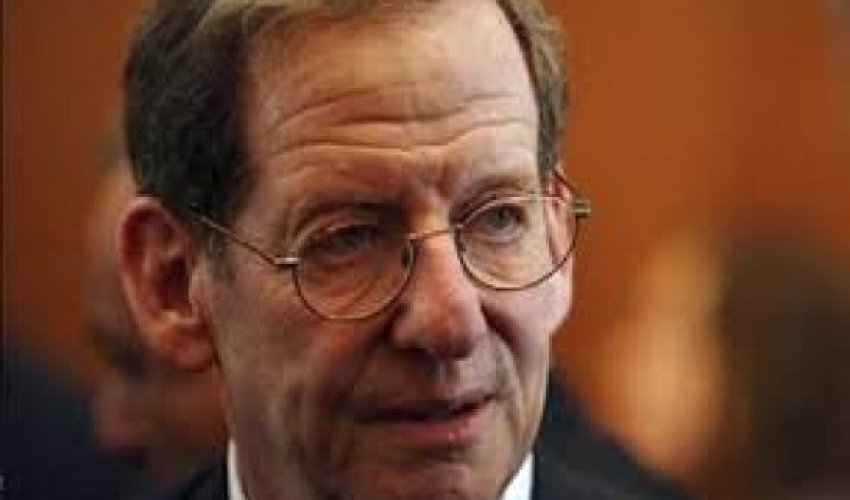
The United States values its strategic partnership with Azerbaijan,Ambassador Richard Morningstar said in an interview with Trend.
"And more than anything else, we want to help protect the independence and sovereignty of Azerbaijan, which we think is very important," Morningstar said.
"We have a whole series of shared interests which include democratic and economic reform, security reforms relating to the Nagorno-Karabakh conflict and Afghanistan, and counterterrorism. We also have a strong shared interest in issues relating to energy," he added.
He said that the U.S. also wants to help Azerbaijan develop its non-energy economy.
"We believe that Azerbaijan's future success will best be realized by continued democratic and economic reform, and strong partnership with other democratic countries. We will continue to work on these issues, but at the same time it is very important that we work on the other issues that I mentioned. Just as another example, we feel very strongly about and are encouraging Azerbaijan's accession into the World Trade Organization. We think we can be helpful on that. We think that would be a major factor in developing the non-energy economy," the ambassador said.
Going back to the strategic side of things, Morningstar stressed that the U.S. very much appreciates Azerbaijan's cooperation on Afghanistan, with the troops that it has there.
"Plus, what it has committed to do after 2014 when troops will withdraw and of course, transit of non-lethal goods through Baku and over Azerbaijan. So we do have a lot that we need to continue to work together on. We can have a very deep partnership," he said.
U.S. and the Nagorno-Karabakh conflict
Morningstar said that the U.S. is very much concerned about the recent tension between Azerbaijani and Armenian troops on the contact line.
"The U.S. has made very clear to both Azerbaijan and Armenia that escalation on the line of contact is not helpful at all. In fact, it is quite damaging to the peace process," he said.
Also, that there can always be unintended consequences and miscalculations that can lead to greater hostilities, according to the ambassador.
"At the same time, we are somewhat encouraged that at least for the time being that escalation has slowed down. And there have been fewer incidents over the past few weeks when some weeks ago there had been a flurry of incidents. We were encouraged by the meeting in November by the two presidents. We think that was a constructive meeting. We hope that those meetings will continue. Because, at the end of the day, this conflict will ultimately be resolved if the two presidents sit down and come up with concrete steps to move toward a resolution that would be in the interest of all Azerbaijanis and Armenians as well," Morningstar said.
With regard to the fact, that so far, the OSCE Minsk Group member countries have not recognized Armenia as an aggressor country, the ambassador said that as Minsk Group co-chair, the U.S. can mediate, can facilitate and can come up with ideas that can help the two presidents for example to move towards the settlement.
"But we cannot engage in name-calling. We can't brand either Armenia or Azerbaijan as aggressors or call either side various things because that makes it almost impossible to be able to serve as a mediator. And that does not mean, when things happen like escalation on the line of contact, that we are not going to push both countries to stop. But, it would not be very productive to peace negotiations if any of the co-chairs wanted to brand either country as an aggressor," Morningstar said.
Azerbaijan's role in ensuring European energy security
The U.S. ambassador believes that Azerbaijan's role in ensuring the energy security of Europe is very important.
"This is something that I have been involved with going back to 1998 when I was working on the Baku-Tbilisi-Ceyhan pipeline. I think that very major steps have been taken just in the past year, including the decision on the route for the Trans-Adriatic Pipeline to deliver gas to Europe," Morningstar said.
"The Trans-Anatolian Pipeline through Turkey- the TANAP pipeline-and of course the final investment decision to move forward with the Shah Deniz gas project were important and major decisions. This is an area where we helped Azerbaijan accomplish these objectives. Development in the energy sector in Azerbaijan protects Azerbaijan's independence and sovereignty which, as I said, is a prime part of our policy. I am sure we will continue to cooperate in this area since it is important to provide alternative sources of energy supply to Europe.
Economic relations between Azerbaijan and U.S.
Talking about the steps that are being taken to increase trade turnover between the U.S. and Azerbaijan, Morningstar said that the U.S. encourages companies to come here and to learn about Azerbaijan.
"We had a trade mission this past November. American companies involved in Turkey came here and learned about Azerbaijan. During Bakutel, we brought several telecommunication and information technology companies to see what investment opportunities exist here. I think there are companies that are very interested in working here," the ambassador said.
He also stressed that at the same time, it is important that Azerbaijan takes steps to make (the country) more conducive to investments. "We work with the government on issues of custom reform, tax reform, a competition code that will make it easier for small and medium sized businesses to develop. We also work closely with the government on the WTO accession. So it is a combination of encouraging companies to learn more about Azerbaijan and at the same time working with Azerbaijan to enhance its investment climate... we just want to help it continue to improve," Morningstar said.
The ambassador stressed that the U.S. would be very happy for Azerbaijani companies to operate in the United States.
"At the same time, as I said before, we encourage American companies to look at Azerbaijan's long-term investment potential as well," Morningstar said.
Talking about section 907 of the United States Freedom Support Act that bans any kind of direct United States aid to the Azerbaijani government, Morningstar mentioned that this section gets waved every year, which basically allows the U.S. to do what is necessary in connection with assisting Azerbaijan.
"Regarding the section's ultimate repeal, that is really a matter for Congress. But again I would like to emphasize that the section 907 has been waved every year by the president for over a decade," Morningstar said.
Morningstar believes that fighting against terrorism is one of the prime areas of the partnership between Azerbaijan and the U.S.
"We cooperate very well with Azerbaijan in different ways to counter terrorism. One of those important areas that we should be doing more of-and I think will do more of-is protection of infrastructure, particularly energy infrastructure, from the potential of terrorist attacks. We continue to talk with the government of Azerbaijan on those kinds of issues. So we see them very much as a partner in the counter-terrorism effort. And, of course, Azerbaijan has been very helpful, with respect to Afghanistan which is also a part of the same concerns," Morningstar said.
He also stressed that Azerbaijan has been very active in international peace keeping efforts.
"We certainly appreciate Azerbaijan's contributions," Morningstar said.
Iran's role in western gas projects
The ambassador believes that right now it would be impossible for Iran to participate in Western gas projects.
"But we will see what happens with respect to nuclear negotiations and will see what happens whether there is more normalization of relations," Morningstar said.
It is too soon to tell whether that will happen, he believes.
"But we will see what happens in the coming months and years and how things develop in the negotiations in various areas," he added.
ANN.Az


























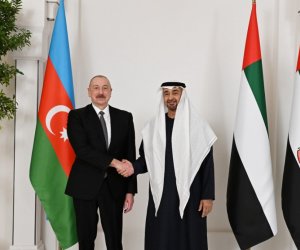
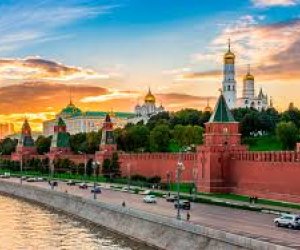

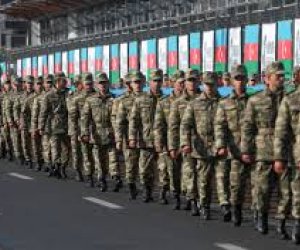
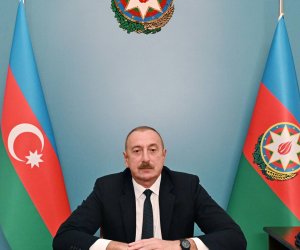





 Photo
Photo 



 Video
Video 

